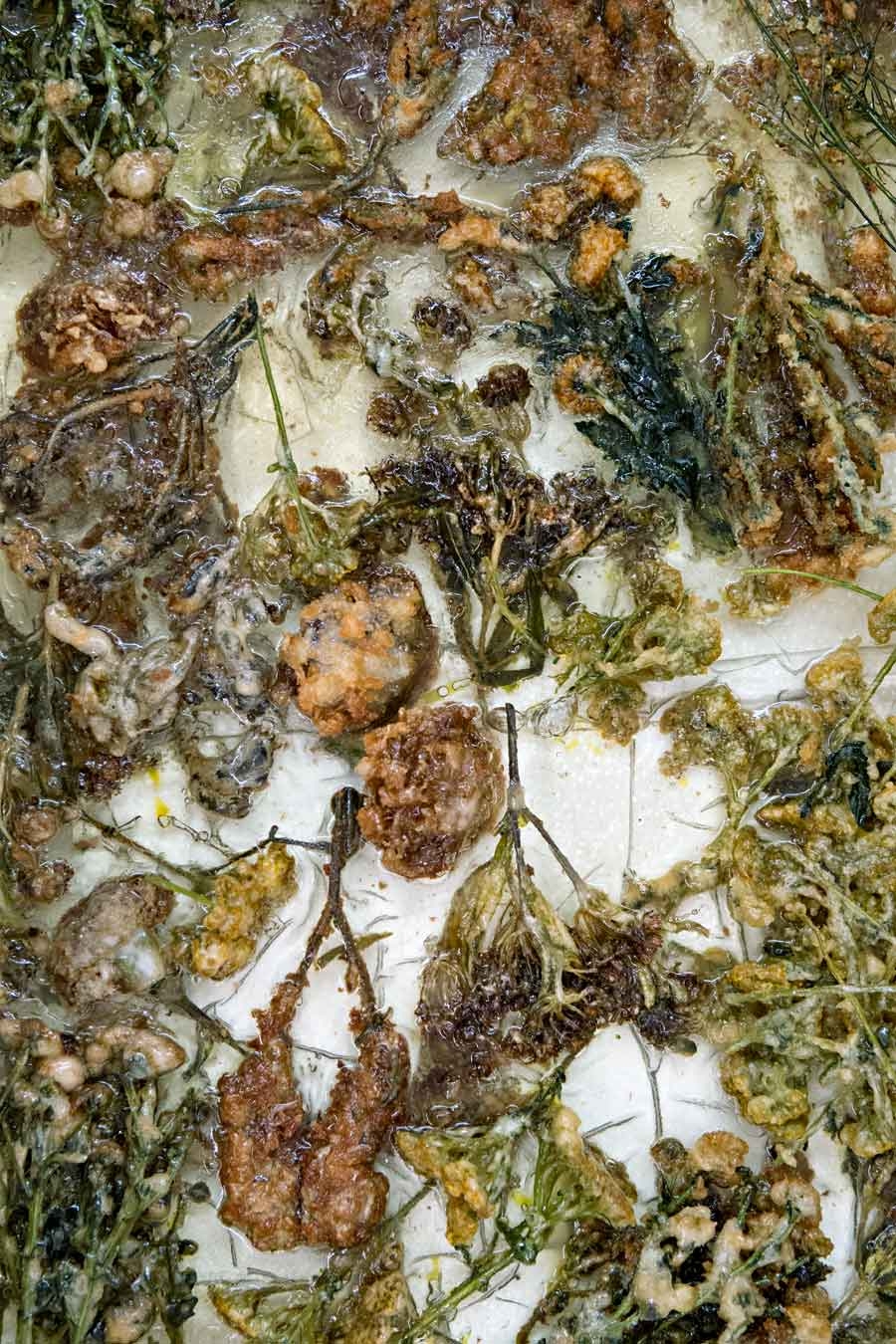Editor’s Note: In 2016 Seoul-born Anicka Yi was awarded the Hugo Boss Prize and opened her first major institutional exhibition in the US at the Solomon R. Guggenheim Museum, New York, titled Life is Cheap
It wouldn’t be much of an insult to compare Anicka Yi’s work to cheap takeout, because that’s kind of what it is.
You could smell her 2011 47 Canal show Sous-Vide before seeing it, as the bouquet of tempura-fried flowers comprising the disembodied head of Sister (2011) left a particularly pungent smell in the air. The flowers, overflowing out of the neck of a cheap-looking red sweater, eventually lost their aroma, letting the more understated odour of olive oil take centre stage. It gurgled, drooled even – from holes punched into the walls of a nearby room, in the work Auras, Orgasms, and Nervous Peaches (2011) – before collecting in a trough near the floor.
For her contribution to Some End of Things (2013) at Basel’s Museum für Gegenwartskunst, Yi’s sad little fried friends made another appearance, this time laid to rest on blocks of resin in cardboard boxes. Arranged in several rows on the floor, they resembled Donald Judd’s 100 Untitled Works in Mill Aluminum (1982–6) turned into small, messy, fucked-up food trays that overwhelmed the rest of the show with their stench, which either made you hungry, if you’re into fried food, or vomit, if you’re not.
This is hardly the stuff neominimalist dreams are made of. As simple and spare as her installations can be, they’re remarkably abject in the sense that food – and by extension smell – attributes something grotesquely bodily to everything she makes, no matter how provisionally antiseptic, such as her stretcher frames of soap or the little assemblage sculptures inserted into wall cavities at Lars Friedrich, Berlin, as part of her recent exhibition Denial. One, The Easy Way to Quit New York (2013), features an incongruous mix of media, from a stainless steel showerhandle to fish-oil pills, arranged into something elegantly allegorical about the various industries that constitute our identity. We are living, breathing ciphers of capitalism – shitting and pissing its products, food, perfume or otherwise – a pattern Yi foregrounds, if not destabilises, by rendering these shiny, attractive things functionally ‘unclean’, as Julia Kristeva described the abject, making our ‘identity… feel constantly threatened’.
There is, indeed, something sinister to Yi’s works, whether she’s boiling shredded Teva sandals in recalled powdered milk, or vacuum-packing peanuts in a kind of plastic scarf, draped around a Philippe Starck chair. What do these things say about us? The answer, whatever it is, seems particularly cautionary in Yi’s hands.
Originally published in the March 2014 FutureGreats issue, in association with EFG International
